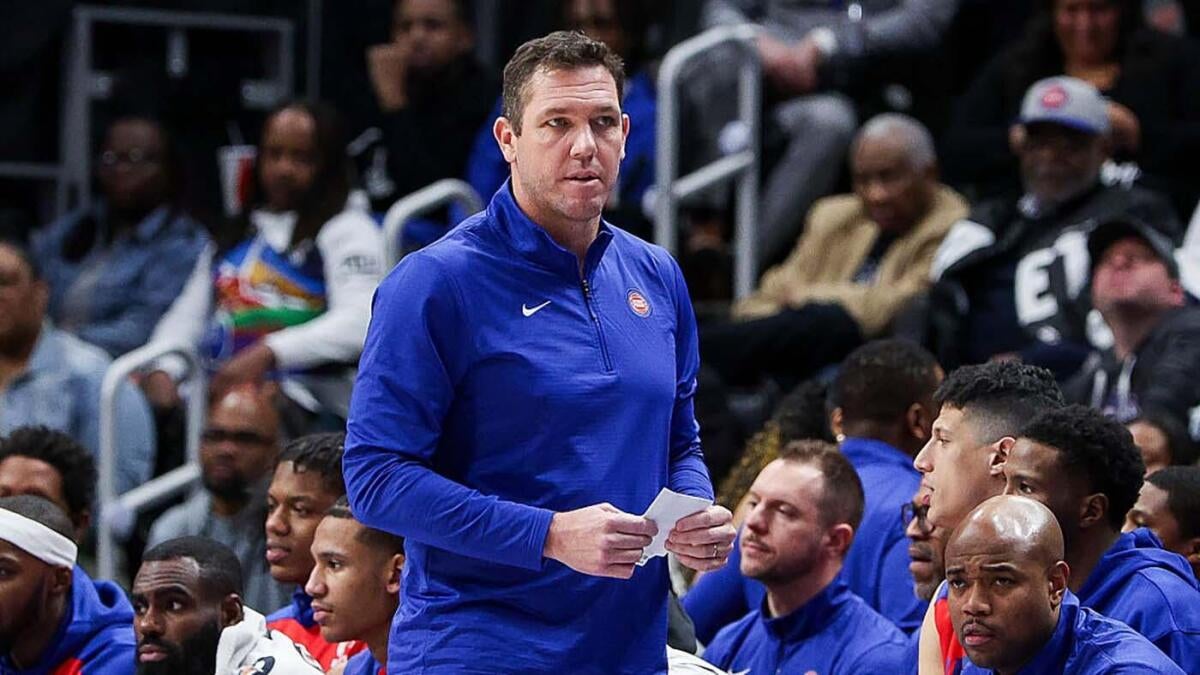Decoding the Knicks’ Coaching Crossroad: Analyzing the Post-Thibodeau Era
The departure of Tom Thibodeau as head coach of the New York Knicks has stirred intense debate and speculation, shaking the foundation of a franchise just emerging from a towering playoff run. His surprising exit following a historic Eastern Conference Finals appearance invites an in-depth look into the complexities behind the move, the prospects lined up to take the helm, and the strategic vision guiding the Knicks’ next chapter.
The Uncommon Timing of Thibodeau’s Exit
In the world of professional sports, coaching changes usually occur after failure rather than success. Tom Thibodeau’s firing defies this norm — he led the Knicks to their first conference final in 25 years, showcasing a defensive discipline and gritty intensity that seemed to rejuvenate the franchise. Yet, beneath the surface, fractures may have formed: internal disagreements over coaching style, cultural fit, and perhaps negotiations over his contract reportedly driving a wedge.
Thibodeau represented a traditionalist, defense-first mindset that brought measurable results but may have collided with the evolving needs of the team or the ownership’s long-term ambitions. Moreover, emerging reports of the Knicks’ readiness to shell out upwards of $20 million annually for a coaching position signal a bid to redefine leadership with a fresh approach aligned to a new vision.
Contenders in the Spotlight: Luke Walton and Mike Brown
Luke Walton: A Risk with Offensive Promise
Among the most discussed candidates, Luke Walton stands out for embodying a contrasting philosophy to Thibodeau’s. His record is a mixed bag— while his Lakers tenure drew criticism for inconsistent leadership and questionable in-game decisions, his player-friendly coaching style and offensive adaptability appeal to those favoring a modern, less rigid approach.
Walton’s offensive-mindedness suggests a potential shift toward a more fluid, collaborative team culture. However, questions linger about his capacity to manage star players and high-pressure playoff situations, vital for a franchise hungry not just for wins, but sustained success. His fit with a Knicks roster blending emerging talents and veteran presences remains speculative.
Mike Brown: Defensive Strength with Proven Stability
Mike Brown brings a different flavor — a coach with recent accolades as NBA Coach of the Year and a proven ability to cultivate disciplined defenses without stifling offensive creativity. His leadership propelled the Sacramento Kings to a top seed in the previous season, underscoring a balance between structure and flexibility.
Brown’s candidacy appeals to a franchise seeking both reliability and innovation. His track record indicates a potential for stability absent in Walton’s tenure, a critical factor for an organization navigating its high-stakes future. Brown’s style resonates as an evolution rather than upheaval, potentially preserving the defensive tenacity the Knicks have come to embody while encouraging growth on the offensive end.
Beyond the Front-Runners: Evaluating Other Options
While names like Jason Kidd surface occasionally, contractual bindings and availability issues reduce their viability. The consideration of internal candidates, such as Johnnie Bryant — a figure familiar with Thibodeau’s system — signals a nuanced approach blending continuity with new ideas.
The Knicks face a delicate balancing act: investing in a seasoned, victorious coach or taking a chance on a personality offering fresh perspective but unresolved questions. The decision transcends pure coaching credentials; it must harmonize with the team’s makeup and the franchise’s long-term goals.
Strategic Repercussions: What This Coach Could Mean for the Knicks
The choice at hand encapsulates a philosophical pivot. Thibodeau’s defensive rigor, while effective, reportedly caused friction and possibly limited offensive innovation. A shift toward Walton’s model might usher in a freer-flowing offense and a more congenial locker room environment, albeit with competitive risks. Conversely, Brown offers continuity in defensive excellence paired with potentially smoother player relations and offensive balance.
Financial willingness to offer an unprecedented coaching salary underscores the Knicks’ commitment to winning now while building a sustainable foundation. This investment elevates the stakes, demanding not only tactical expertise but leadership capable of meshing tradition with modern NBA evolution.
Defining the Future: A Momentous Decision for the Knicks
Selecting the next head coach is more than filling a vacancy; it is about steering the Knicks’ identity amid the intense currents of the Eastern Conference. Luke Walton’s candidacy embodies reinvention — a chance to embrace innovative offense and a player-first mentality but with uncertainty about playoff feasibility and leadership toughness.
Mike Brown stands as a pillar of tested success, promising a blend of defensive strength and nurturing leadership, possibly translating into steadier growth and immediate impact.
The Knicks’ next coaching choice will echo beyond schemes and box scores, influencing team morale, fan enthusiasm, and the franchise’s cultural ethos. It is a crossroads laden with promise and pressure, an inflection point that could shape the Knicks’ narrative and aspirations for years ahead.











